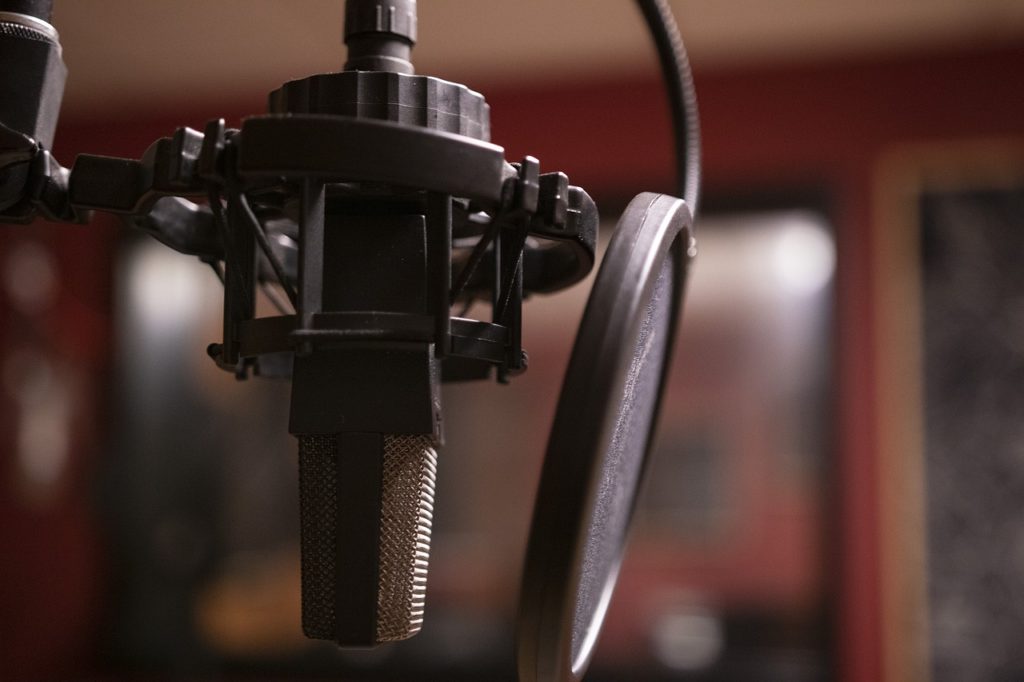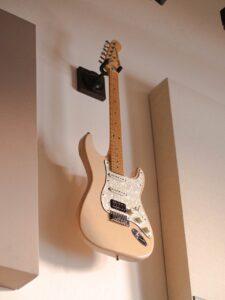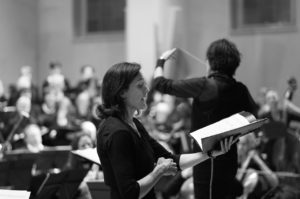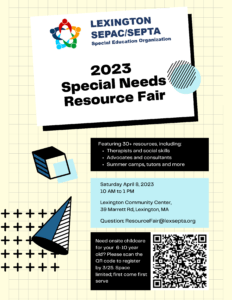Estimated reading time 3 minutes
Table of Contents
Anyone Can Learn to Sing #1: If You Can Talk, You Can Sing
Anyone can learn to sing, including you. An old Zimbabwe proverb says, “If you can walk, you can dance. If you can talk, you can sing.” So, if you can talk, why don’t you give singing a try? Read more to find out how it works.
This article uses musical terms. For definitions, see the Glossary at the end of the post.

Anyone Can Learn to Sing #2: Can Anyone Really Learn How to Sing?
At this point you may be asking yourself, “Can anyone really learn how to sing?” In the strictest sense of the term anyone, the answer would be “no.”
- However, unless you’re either non-verbal or tone deaf this won’t apply to you.
- Before you say, “Wait! I’m tone deaf!” Realize that only a small percentage of the population is truly tone deaf.
- This means that if you have a hard time carrying a tune, you probably have problems with pitch matching, which can be fixed, instead of tone deafness.
To learn how to match pitches using sing-along soundtracks:
Just because (in our broader sense of the term) anyone can learn to sing, doesn’t mean that just anyone can land a major record deal. To sing well you either need talent, training, or both. Keep reading to learn how you can improve your vocal skills.

Anyone Can Learn to Sing #3: Building Up You Vocal Skills
Anyone can learn to sing, including you, but only if you’re willing to put in your practice time. Even then, how you practice will be just as important. After you learn pitch matching, there’ll be several areas you’ll need to work on with the help of the sing-along soundtracks.
Ear Training:
First, you need to learn how to harmonize:
- Harmonize with Sing-Along Songs
- Ear Training Exercises for Harmonizing
- Singing Major and Minor Harmonies in Tune
Second, these three tuning cues – beating, buzz, and fusion – will help you to tune up when harmonizing. If you can’t sing in tune, you won’t sound good:
Third, learning how to listen to vocal nuances will allow you to learn to sing expressively:
Vibrato:
Singing with vibrato is great if you’re a lead vocalist. However, to learn how to sing a cappella quality harmonies, you need to practice harmonizing without vibrato:
Tone Production:
If you want to sound good, you need to know how to produce a good tone. This starts with your vowels:
Likewise, you’ll need to sing with a high but relaxed soft pallet if you want to produced good vowels:
Plus, the singing into the mask exercise adds another important component to your ability to control your tone:
Singing With Power:
Want to sing with power? You’ll need to sing with a supported tone:
Breath Phrasing:
Make sure you have enough breath to maintain your pitch. Being able to do this depends on when you breathe within the song’s phrases:

Anyone Can Learn to Sing #4: Summary
Here’s some final thoughts on Anyone Can Learn to Sing, Including You:
- If you can talk – and you aren’t tone deaf – you can sing.
- Learn how to pitch match.
- Gain control of your tone production.
- Make sure you sing with a high soft pallet.
- Sing with a supported tone.
- Make sure you get enough breath to maintain your pitch.
- Focus on your ear training, including singing harmonies without vibrato.
For more singing exercises with sing-along soundtracks:
Have fun singing!
Relate Posts:
- 10 Elements that Impact Singing in Tune
- How to Hear the Notes When Harmonizing
- How to Harmonize in Minor Keys
© 2023 Geoffrey Keith
Join me for in-person or online lessons today!
Glossary
The G Major Scale (Including the G Major Chord Scale)
Do you want to know what notes and chords are in the G major scale? Do you find the theory behind the G major chord scale confusing? To truly understand music, you must know how to construct scales and how to build chords from the scale tones. Read “The G Major Scale (Including the G Major Chord Scale)” to learn how they work. Estimated reading time 3 minutes.
Read MoreWhy Is EADGBE the Unquestioned Standard Guitar Tuning?
“Why is EADGBE the unquestioned standard guitar tuning?” How you tune affects both the sound and playability of the guitar. There are many tunings, but EADGBE is the indisputable standard. What makes it so popular among guitarists? Keep reading to find out. Estimated reading time 3 minutes.
Read MoreSinging Shape Note Solfege Minor Melodies
Have you gotten down sight singing major melodies, but want to be able to sing minor melodies? You have come to the right place. Read more to learn about singing shape note solfege minor melodies. Estimated reading time 3 minutes.
Read MoreGeoff will Have a Table at the 2023 Special Needs Resource Fair
I‘ll have a table at LexSEPTA’s 2023 Special Needs Resource Fair this Saturday. I will have my Perception Presentation with me, which shows what it’s like to have a learning disability, such as dyslexia or language-based learning disability. See you there!
Read More




